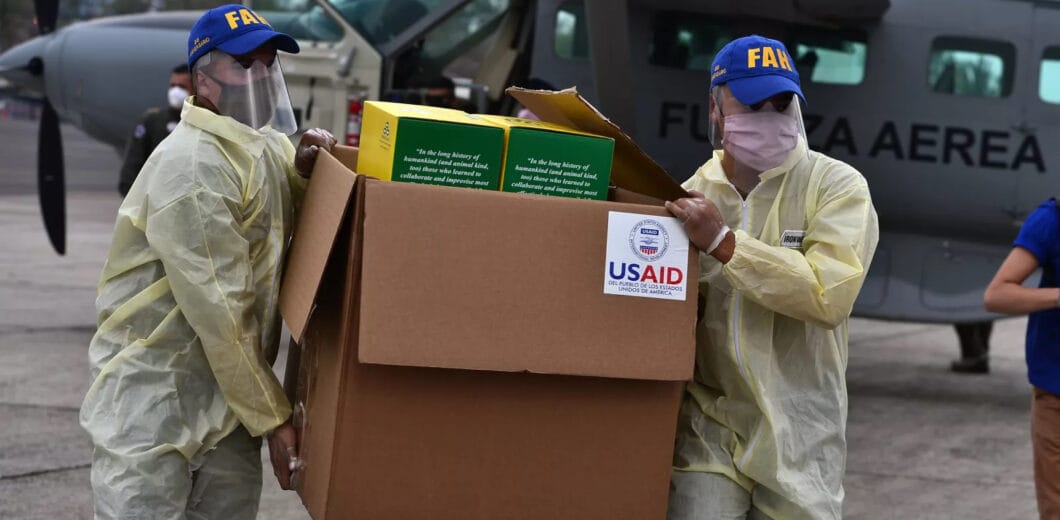To people living with and affected by HIV around the world, and our civil society and community-led partners and allies,
We recognize the difficulties many of you may be facing due to the US funding freeze and the extreme uncertainty surrounding the HIV response – and indeed, we are experiencing these same challenges in our organizations, and in our lives. As the NGO Delegation, our aim is to provide an update on recent engagement efforts with UNAIDS leadership since the stop-work orders and spending freeze took effect.
- Civil society and community-led organizations’ concerns about severe disruptions to services, advocacy efforts, and the overall HIV response were strongly raised. The leadership was urged to take concrete steps to actively champion and support people living with HIV, key populations and other affected communities.
- We heard about the rapid actions taken by the UNAIDS Secretariat to engage with the US government, helping to secure the initial waiver which provides an exception for life-saving HIV treatment and care, and prevention of mother to child transmission, and more recently, this detailed guidance from the US State Department and PEPFAR. We are also acutely aware that this guidance has still not been communicated to the majority of civil society and community-led implementers, and that court proceedings in the US this week may mean that further clarity is needed.
- UNAIDS advises that a central part of its role is in convening key actors in the HIV response at regional and country levels, so that critical gaps can be identified and filled. Responding to our concerns that communities and civil society must be included, the Directors advised us of the active steps that they are taking to advise UNAIDS’ regional and country teams on the critical need to ensure meaningful engagement. UNAIDS has indicated that an impact assessment is underway, with data collection efforts informing donor engagement. Community organizations collecting data on the impact of the funding freeze are encouraged to share their findings with UNAIDS Community and Youth Engagement Lead at euzebiodelimac@unaids.org.
- However, this crisis demands more than analysis. Decisive action is needed to secure alternative funding, and we urged UNAIDS to play a leading role in resource mobilization efforts to fill critical gaps and sustain comprehensive HIV programs.
- Alternative approaches to service delivery and cost-effective programming are being explored by UNAIDS. The NGO Delegation emphasized that any adjustments must not compromise the leadership of community-led organizations or shift additional burdens onto those already heavily impacted.
What We Expect from the Joint United Nations Programme on HIV/AIDS:
- As UN agencies, maximize your diplomatic engagement with the US government, pushing for all partners impacted by the funding freeze to urgently receive direct communications clarifying that they can reopen services that remain shut down, and challenging the new administration to rethink its opposition to essential aspects of an effective HIV response, including HIV prevention and key population programming.
- Convene high-level resource mobilization efforts (potentially through a Structured Funding Dialogue or an Extraordinary PCB Meeting) to identify major funding gaps both in the immediate and long-term future, and advocate assertively with donors to ensure continued financing of HIV programs, particularly those led by and for key populations, alongside HIV prevention, comprehensive SRHR, including access to contraception, and services addressing gender-based violence. Women, girls, trans, and non-binary people—who face compounded risks due to the funding freeze—must not be left behind.
- Champion and facilitate the meaningful engagement of civil society and community-led organizations with local stakeholders in the development of domestic action plans to adapt to the current crisis and work towards long-term sustainability. UNAIDS must be accountable for ensuring their meaningful engagement in all national and regional convenings involving UNAIDS and co-sponsors. Community-led organizations are also encouraged to directly reach out to those offices (UNAIDS Country Offices or Regional Support Teams) to seek information and engagement.
Even with new guidelines and temporary orders coming through, the situation remains deeply concerning. Two NGO Delegation representatives will maintain regular communication with the UNAIDS leadership. We also encourage UNAIDS – by which we mean the entire joint programme – to put in place regular touchpoints and open channels of communication with communities of people living with and affected by HIV, and wider civil society, in order to ensure that their concerns remain central at all decision-making levels. Given the rapid pace at which this situation is evolving, with new directives and changes being issued—sometimes by the hour—we remain committed to closely monitoring the UN Joint Programme’s response and advocating for the best possible outcomes for people living with and affected by HIV, and for community-led and civil society organizations working to sustain HIV responses and protect human rights during this unprecedented crisis.
Sincerely,
The NGO Delegation to the UNAIDS Programme Coordinating Board
Martha Clara Nakato & Ulrich Mvate – NGO Delegates of Africa
Sonal Giani & Jeremy Tan – NGO Delegates of Asia and the Pacific
Fionnuala Murphy & Amanita Calderon-Cifuentes – NGO Delegates of Europe
Xavier Biggs & Keren Dunaway – NGO Delegates of Latin America and the Caribbean
Shamin Mohamed Jr. & Todd Theringer – NGO Delegates of North America
